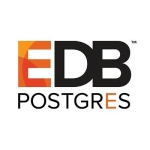What is most valuable?
The product is pretty good for small or mid-scale organizations that don't have the luxury of proper DBAs or a large infra team. Scaling up and down is relatively easy without a proper setup. And apart from reducing these overheads, you have better performance insights if you use a server. And if you are serverless, your costs are lower. So we use both.
What needs improvement?
Concerning performance, when a cluster upgrades from lower to upper config, the connection drops. This could be solved by better coding and settings and included in the next release.
It's supposed to be scalable, but we don't feel that. True, there won't be any drops. The solution they gave was to maintain our cluster at a level sufficient for our peak load. However, that will probably defeat the whole purpose of on-demand scalability. So that is certainly where we might need to rethink the solution. It actually works in real-time, but it's not at a level where we can think of five seconds or 10 seconds there.
For how long have I used the solution?
We've been using the solution for three years.
What do I think about the stability of the solution?
Two of our products are in production on RDS, so we use RDS extensively. RDS routers are valid on two of our product suites. And then RDS SQL Server 2016 instance 52 is on many of our client implementations.
Buyer's Guide
Amazon RDS
January 2026
Learn what your peers think about Amazon RDS. Get advice and tips from experienced pros sharing their opinions. Updated: January 2026.
879,899 professionals have used our research since 2012.
What do I think about the scalability of the solution?
It's supposed to be scalable, but we don't feel that. True, there won't be any drops. The solution they gave was to maintain our cluster at a level sufficient for our peak load. However, that will probably defeat the whole purpose of on-demand scalability. So that is certainly where we might need to rethink.
How are customer service and support?
RDS support is decent enough.
We contact tech support about different issues in general and concerning the services we provide.
Before deployment, we do our POC in a lower environment, making everything very clear. But whenever we have downtime or hiccups, we investigate. And if needed, we reach out to the tech support team for clarification.
One of the challenges of AWS RDS is that it doesn't support performance insight. So we need to write our own script or use third-party tools.
If Amazon could provide the same support for serverless solutions that it provides for server-based ones, like RDS instance-based SQL Server, that would be a great improvement.
How was the initial setup?
I would rank the setup as eight out of 10, along with the Microsoft SQL Server on RDS. It took 10 to 15 minutes. It was straightforward for me as my field is data and data engineering. But it shouldn't be too difficult for anyone unfamiliar with the technologies because the documentation is pretty clear.
What about the implementation team?
We do everything in-house. So typically, we don't hire consultants unless we land up in a very niche area. We also work closely with AWS teams on different POCs before launch.
What was our ROI?
We are not currently scaling up our legacy infra, so we are definitely seeing dollars there, typically around 3K. Since it's not calculated, I'm giving the figure off the top of my head. So this will be quite a different figure for different people.
What's my experience with pricing, setup cost, and licensing?
On pricing, I would rate RDS six out of 10 because if you don't know how to optimize and use your tool properly, the cost might hurt you. It would've been great if they had some cost alerts. You can usually manage using CloudWatch, but a simple notification that your costs just went up sharply or you overspent would help. I know there are videos and instructions on AWS. I'm not saying it's not there. But when the technology is new to you, it's hard to know what went wrong. And certainly, if you're not looking at your bill, you will be shocked by the amount.
We had one or two bad instances or hiccups, but now we have everything under control. The licensing is fine for us, but it may be a challenge for new users.
What other advice do I have?
I would rate Amazon RDS eight or nine out of 10.
I recommend RDS because it makes your life super easy. You can focus on your main functionality, your product and on maintaining your infra. It is highly recommended for small and mid-sized organizations.
We have thousands of RDS users in our company.
The number of users is directly proportional to the number of clients and their user tools. As we grow, so will the number of users.
The only deployment we do is for RDS. In fact, the product itself does the whole stack deployment. You don't need a deployment team for RDS when it's service-based or for the separate deployment of S3. The same person can do RDS on S3. Usually, you would have a cloud ops team of two or three, depending on the number of clients and the complexity and size of the projects.
If you're changing your tech stack and working with new cloud technologies, RDS makes sense. And one of the major costs of legacy technologies is RDBMS licensing, which can be managed and used optimally using RDS.
Which deployment model are you using for this solution?
Public Cloud
If public cloud, private cloud, or hybrid cloud, which cloud provider do you use?
Amazon Web Services (AWS)
Disclosure: My company does not have a business relationship with this vendor other than being a customer.
















